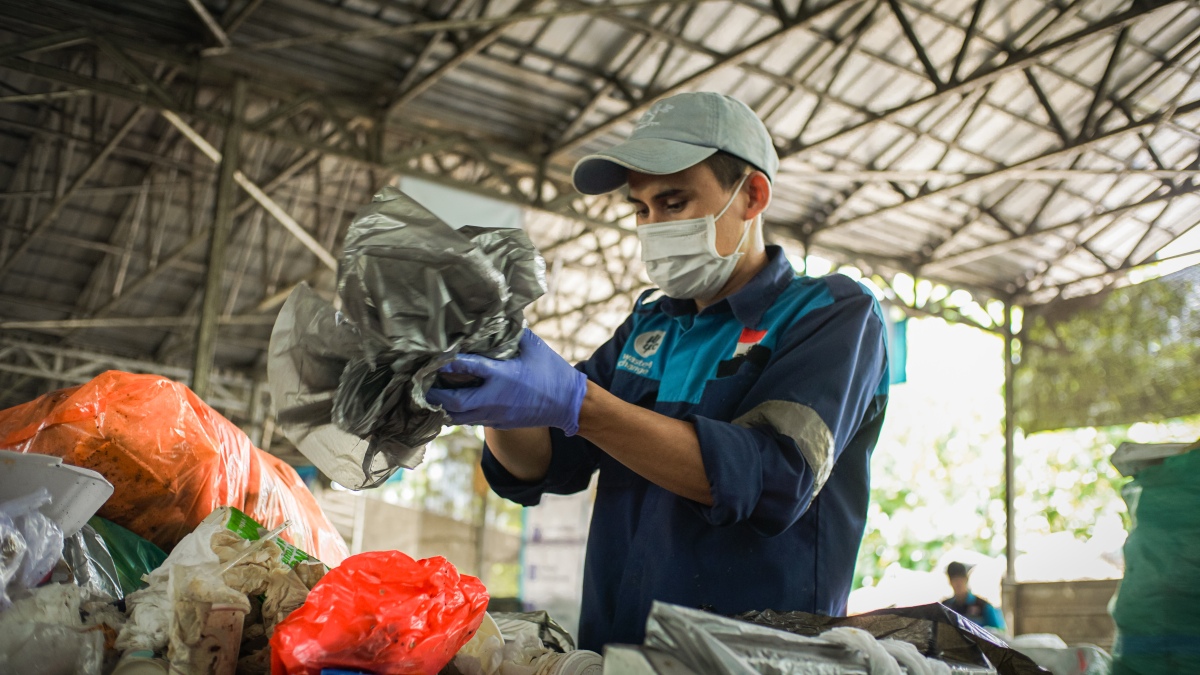Waste4Change is building a circular economy in Indonesia • ZebethMedia
Even the largest landfills in Indonesia are at (or nearing) capacity, and the government has set an ambitious target of 30% waste reduction by 2025. Waste4Change is one of the companies that wants to help by increasing rates of recycling and enabling better waste management. The startup, which currently manages more than 8,000 tons of waste very year, announced today that it has raised $5 million in Series A funding, co-led by AC Ventures and PT Barito Mitra Investama. Other participants in the round include Basra Corporation, Paloma Capital, PT Delapan Satu Investa, Living Lab Ventures, SMDV and Urban Gateway Fund. Founded in 2014, Waste4Change has seen a CAGR of 55.1% since 2017, and is present in 21 Indonesian cities, where its services are currently used by about 100 B2B clients and more than 3,500 households. Waste4Change was created by founder and CEO Mohamad Bijaksana Junerosano based on conversations between PT Greeneration Indonesia, an NGO, and waste management organization PT Bumi Lestari Bali (ecoBali) to form a company that reduces the amount of waste that ends up in landfills. Junerosano is an environmental engineer by training and spent 16 years working in the solid waste sector. Junerosano says that a major opportunity is created by Indonesia’s low recycling rates (about 11% to 12%), which means there is a lot of valuable recyclable material that is being left behind. “Waste reduction is a top priority, followed by material optimization and recycling which supports the concept of a truly circular economy,” he told ZebethMedia. Waste4Change will use its new funding on expansion and increasing its waste management capacity up to 100 tons per day over the next 18 months, with the target of reaching more than 2,000 tons per day over the next five years. Waste4Change’s team Junerosano said Waste4Change differentiates from traditional waste management solutions by providing an end-to-end solution, with a focus on sustainability and zero waste. Part of its strategy includes more digital integration for monitoring and recording the process of waste management and automating its material recovery facilities. “We see digital integration as a valuable tool to build a sustainable waste management ecosystem,” he said. “The goal is always to create harmony between the environment, the economy and the people.” Waste4Change’s digital integration strategy this year and next include improving its waste journey report and monitoring, which its customers receive after their trash is processed. To use Waste4Change, customers can ask for a pick-up team to collect their pre-sorted trash or drop it off themselves. The company currently has 108 employees and 141 waste management operators, with plans to add 52 more people to its team and work with 300 informal waste collectors and SMEs. Informal waste collectors include scavengers, waste banks, waste stalls and waste aggregators. For recycling business partners, including informal waste collectors, Waste4Change is building a platform to help them sell and buy solid waste with the company. The goal is increase the traceability and accuracy of the waste management process. It is also working on a program called Send Your Waste, where consumers can send waste to Waste4Change’s pick-up points. An app tells them what kinds of waste to send, where the nearest pick-up point is and what kind of reward they can receive. Junerosano says informal waste collectors tend to be selective about the materials they collect, picking out PET bottles, glass and cardboard. But this means less desirable materials like PP plastic, multilayer packaging and styrofoam are often left behind, polluting the environment. To combat that, Waste4Change has started a service called Waste Credit, that gives incentives for picking up certain materials, and also makes it easy for waste collectors to build this businesses. “Considering the crucial role of the informal sector in improving Indonesia’s recycling rate, we aim to build a waste recycling platform that will keep the system sustainable,” he said. “We are more than happy to bring it to life with a joint venture or joint operation with other industry stakeholders, including those in the informal sector and local Reduce, Reuse, Recycle (3R) temporary waste storage sites.” In a statement, AC Ventures founding partner Pandu Sjahrir said, “Waste4Change is a pioneer providing an end-to-end waste management solution. Sustainability is the team’s main focus, with a demonstrated commitment to building a better future for Indonesia. The company is proving that it has reached product-market fit and has the potential to scale across the nation.”




